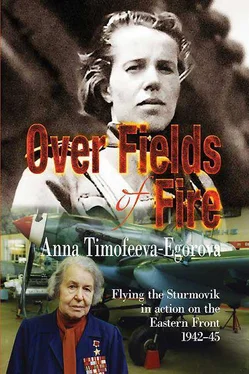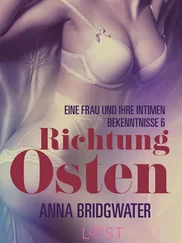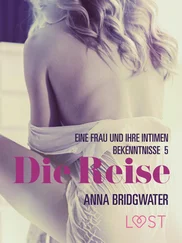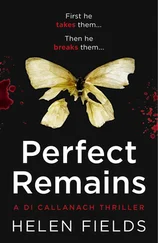For some reason Pashkov never called by my first name or surname, nor by my rank or position. He called me simply stanishnitsa. “Well, stanishnitsa , how are things?”
“Not bad, thanks.”
Once (how many of those ‘onces’ there were!) Pashkov flew into the enemy’s rear to undertake reconnaissance and aerodrome photography. He was escorted by fighters, but on the way back, when the mission had already been carried out, they were attacked by Messerschmitts. Six of them were up against our two LaGG-3 fighters and one Sturmovik . The leader of the pair of fighters told Pashkov to “tramp it” home and that they would engage the skinnies. Our pilots had nicknamed the Me-109s so for their narrow fuselage… But shortly after that the first LaGG caught fire and began to fall…
“You bastards!” Filipp cursed and flew his Sturmovik towards the dogfight. Well, naturally he shouldn’t have done that, for he had to deliver the reconnaissance data and the film to the aerodrome. However, Pashkov managed to shoot down one Hitlerite, and another, shot up by him, retired from the fight, while the third one was cut down by our fighter. Upon returning to the aerodrome Filipp was strongly reprimanded, but when the film was developed the regiment commander hugged the pilot and congratulated him with an award — the Order of the Red Star. A week later Pashkov didn’t come back from a sortie, and we counted him as dead. The war… How much grief, unforeseeable surprises, and sometimes just miracles it brought each day… Five days later Filipp came back to the regiment with his aerial gunner — unshaven, ragged and dirty but cheerful.
Upon his return Filipp addressed me by my first name for the first time, saying: “They say you cried bitterly for me? Thank you. But you’d have done better to believe in my life, to believe I would definitely come back…”
And Pashkov perished anyway. It happened north of Novorossiysk, near Verkhnekabanskiy. That time I waited a long time for him, trying not to believe in his death, but never saw him again. I wrote about his death to his mum and sister in Penza, to the city where Filipp had invited me after the war.
…But for now we were all still alive and riding to the aerodrome. My thoughts were suddenly interrupted by some loud banging — it was pilots drumming on the truck cab, several yelling to the driver: “Stop, stop, what’s the rush?” The driver slowed down and they ordered him: “Backwards fast!” It turned out a cat had crossed the road in front of us. That was trouble… A second time the guys stopped the vehicle and made the driver reverse when they came across a woman with empty buckets on her yoke. It can’t be denied that airmen are a superstitious mob.
…Our regiment surgeon Kozlovskiy was talking someone into having this blood pressure measured before a sortie. “Doc, you’d be better doing my kitten — he’s acting nervous today for some reason”, Rzhevskiy stopped him to the common laughter of all.
“It looks like you’ve forgotten, Grisha, how you fed him five rissoles at dinnertime?”
“Is your chest dry?”
The jokes were starting. We couldn’t get by without them. From outside it might seem these happy guys were riding tipsy… But here we were at the aerodrome. Technicians, mechanics, motorists, instrument specialists, armourers — all of them were by the planes. It was always like that: in frost, in heat, in the open air our workmen, descendants of wonderful Russian craftsmen, prepared the planes for combat. There had been no case in the regiment of anything that failed or broke down being the fault of these tireless workers of the aerodrome.
Tyutyunnik — the mechanic of my Il-2 — wiping his hardened, work-weary hands as he walked, reported the plane ready. Then he helped me put on the parachute, adjusted something in the cockpit, and when the engine had started he shoved a pickled apple he had procured somewhere into my hand and yelled in my ear:
“If you get a dry mouth, bite the apple!” and he rolled off the plane’s wing like a ball, blown away by the spurt from the spinning prop.
I turned on the two-way and heard the voice of the group leader Major Kerov giving permission to taxi out. Pavel Usov’s Sturmovik was ahead of me, the pilot Ivan Stepochkin taxiing right next to him. Stepochkin and Usov were two inseparable friends although very different in character and looks. Usov was a short stocky rousak 122 122 Editor’s note — literally, ‘grey hare’; a nickname for someone with typically Russian looks.
with chubby cheeks as if puffed up from laughing — an ever-smiling joker. Even Pavel’s gait seems merry, hopping as if constantly looking for someone for another joke. Stepochkin was tall, with dark eyes and curly hair — a handsome guy with Gypsy looks. He was usually silent and pensive. Once, when walking about Timashevskaya, the friends went into a church where a service was on. The priest was preaching the benefits of fasting. Usov lingered there and doubting the usefulness of such a thing, began to ask questions, and then started an argument with the priest. When Stepochkin tried to drag his friend away from the church, Usov resisted. It is interesting that the priest finally managed to prove his case to Pavel, and leaving the church the latter firmly declared to Ivan: “I’m going to fast!”
“And I will raise the issue of expelling the Communist Usov from the ranks of the VKP(b) 123 123 Translator’s note — abbreviation for the All-Union Communist Party (of the Bolsheviks).
for his religious connections”, — Stepochkin cut him off and walked away from his friend to the opposite side of the street. In the evening Pavel told all of us about the benefits of fasting with his characteristic humor and fervor. “Only”, he said, “don’t eat too much afterwards like we used do during Easter, that’s no good. But to fast, eating Lenten foods, to give your stomach a rest, is quite good for you.”
“So why have you just ordered another steak, Pasha?” Someone asked him. And a fighter pilot, Volodya Istrashkin, came up to Usov’s table and put on it in front of him a half-litre jar of the sour local grape-wine.
“This is for you, matey, to help your digestion. It seems to me, the priest said today: “Permission is given for wine and oil”…
The pilot Vanya Soukhoroukov — a guy from Ivanovo — flew in my pair. Vanya was a quiet man on the ground — like a fair maiden — but you wouldn’t recognise him in the air! It was him who in November of 1942 led a group of Sturmoviks to the Gizel area near Ordzhonikidze where in one of the hollows surrounding the Voenno-Gruzinskaya Road 124 124 Translator’s note — leading from Vladikavkaz to Tbilisi.
he destroyed the enemy’s tanks and vehicles. Later Vanya Soukhoroukov would win the title of Hero of the Soviet Union.
Major Kerov was the first to take off. We quickly joined the leader and took up combat formation. Glancing back I saw the huge sun rising in the east and the sky illuminated by its bright beams. But in the west, ahead of us, the sky was dark and smoke and fog floated over the ground…
The Blue Line met us with multi-layered flak fire. Shell bursts stood like a wall, blocking our way. Our group broke through this screen at minimum speed and emerged over the stanitsa Kievskaya. Again the ominous tracers crossed the sky. Oerlikon shells were painting the sky with red balls, the splinters of burst shells were banging on the plane’s armour. Now enemy mortars and heavy machine guns had opened on us too. We were flying through pandemonium but we could change neither course nor altitude — we had to go only straight forward. A sea of fire raged around us and I involuntarily pressed myself against the armoured seat back. The seconds seemed an eternity and I wanted so much to shut my eyes so as not to see all this hell!
Читать дальше












